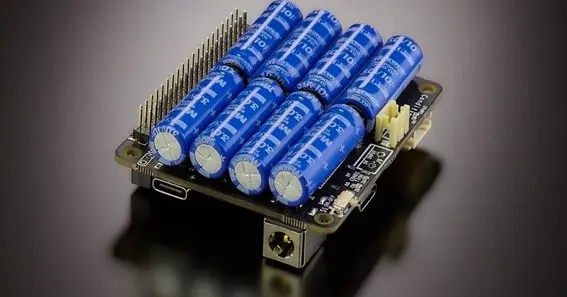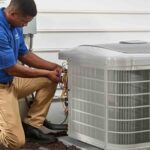In modern electrical systems, maintaining consistent power quality is crucial for the reliable operation of sensitive equipment. Supercapacitor-based power conditioners have emerged as effective solutions to address power quality issues such as voltage sags, swells, and harmonics. By integrating supercapacitors into power conditioning systems, these devices offer rapid response times and high efficiency, enhancing overall system stability.
Understanding Supercapacitor-Based Power Conditioners
Supercapacitors, also known as ultracapacitors, are energy storage devices characterized by high power density and rapid charge-discharge capabilities. When incorporated into power conditioners, they provide immediate energy buffering, effectively smoothing out fluctuations in power supply. This integration is particularly beneficial in applications requiring quick energy delivery and absorption, such as mitigating short-duration voltage disturbances.
Key Benefits
- Rapid Response: Supercapacitors can respond to power disturbances within milliseconds, making them ideal for correcting transient events.
- High Efficiency: With minimal energy loss during charge and discharge cycles, supercapacitor-based systems operate with high efficiency.
- Longevity: These systems offer a long operational lifespan, withstanding numerous charge-discharge cycles without significant degradation.
- Maintenance Reduction: The robust nature of supercapacitors reduces the need for frequent maintenance compared to traditional energy storage solutions.
Applications in Power Quality Improvement
Supercapacitor-based power conditioners are utilized across various sectors to enhance power quality:
- Industrial Facilities: They mitigate voltage sags and swells caused by heavy machinery startups, ensuring uninterrupted operations.
- Renewable Energy Systems: In wind and solar power installations, supercapacitors smooth out the intermittent nature of energy generation, stabilizing output to the grid.
- Transportation: Railway systems employ supercapacitor-integrated conditioners to manage regenerative braking energy and improve traction power quality.
Case Study: Railway Power Conditioning
A notable application is the integration of supercapacitors into railway static power conditioners. This approach enhances the utilization of regenerative braking energy and improves the power quality of traction power supply systems. By connecting supercapacitors to the DC link of the power conditioner, the system effectively absorbs and releases energy, reducing operational costs and enhancing efficiency.
Conclusion
The adoption of supercapacitor-based power conditioners represents a significant advancement in power quality management. Their rapid response, high efficiency, and durability make them suitable for various applications, from industrial settings to renewable energy systems. As the demand for reliable and stable power continues to grow, these systems offer a promising solution to meet modern energy challenges.
FAQ
1. What is a supercapacitor-based power conditioner?
A supercapacitor-based power conditioner is a device that integrates supercapacitors to manage and improve power quality by mitigating disturbances such as voltage sags, swells, and harmonics.
2. How do supercapacitors differ from traditional capacitors?
Supercapacitors have significantly higher capacitance and energy storage capacity compared to traditional capacitors, allowing for rapid charge and discharge cycles.
3. Can supercapacitor-based power conditioners be used in residential settings?
While primarily used in industrial and commercial applications, advancements are making these systems more accessible for residential use, particularly in homes with renewable energy installations.
4. What maintenance is required for supercapacitor-based systems?
These systems require minimal maintenance due to the robust nature of supercapacitors, which have long lifespans and can endure numerous charge-discharge cycles.
5. Are there any environmental benefits to using supercapacitor-based power conditioners?
Yes, by improving power quality and efficiency, these systems can reduce energy waste and support the integration of renewable energy sources, contributing to a lower carbon footprint.
Check out here for a more interesting article lainey-wilson-height










